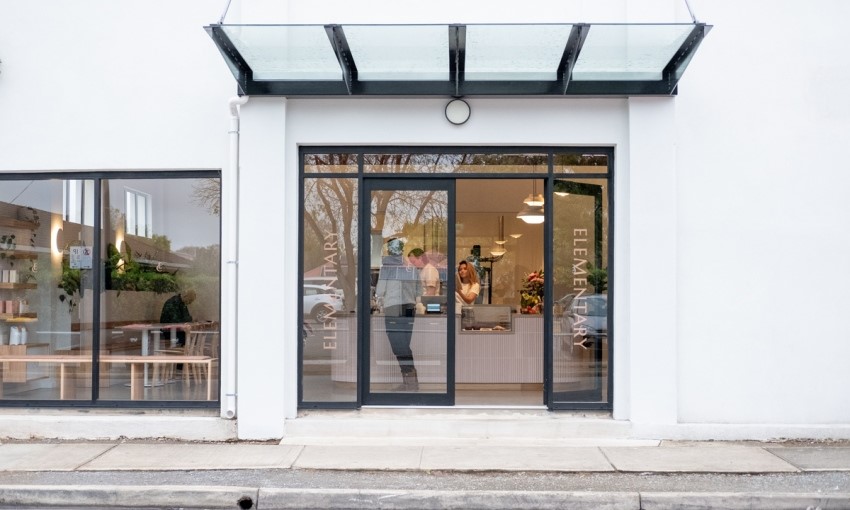
The local coffee roasting scene is reaching new heights, with three specialty coffee roasters moving to bigger sites.
Adelaide’s coffee scene today looks very different to what it did a decade ago.
While the industry has long been dominated by interstate players, Adelaide has finally started to develop a coffee identity of its own, with more than a dozen local specialty coffee roasters establishing their brands across the state.
The growth has been gradual, but it’s reflective of the increasing number of South Australian business owners and consumers seeking high-quality, local, and sustainable produce.
Back in 2015, Brad Nixon, roaster and owner of Elementary Coffee, was yet to open his Young Street roastery and café.
In 2016, the business opened its doors, quickly becoming one of the CBD’s most notable roasters.
Fast forward six years and Elementary has just opened its second café and roastery, in Torrensville.
Moving Elementary’s roasting operations to a second location has been in the works for about four years. Brad realised early on the company’s wholesale business would “pretty quickly outgrow” its Young Street confines.
Since starting Elementary, Brad has worked towards building long-standing relationships with his wholesale partners and coffee growers, which has contributed to his business’s consistent growth.
He thinks Adelaide’s smaller population density may give local coffee roasters a leg-up in terms of achieving sustainable growth, as they don’t have to worry about maintaining relationships with “hundreds of clients”, which is the case for many larger eastern state roasters.
While the new Torrensville store has mainly come out of necessity, it has an innovative focus on giving Adelaide customers – and coffee nerds specifically – new and interesting tasting experiences.
“We wanted a space where we could dedicate ourselves to pushing boundaries of the perception of specialty coffee in South Australia,” says Brad.
“The new space will have a strong focus on pushing the boundaries of both pour over and espresso coffee with the introduction of frozen coffee bean storage and a reserve coffee offering.”
Although Adelaide’s coffee industry still has some catching up to do, Brad sees it “slowly blossoming” as groups and individuals gain the confidence to start investing “in beautiful spaces and top-quality equipment”.
Another local roaster, Monastery Coffee, has a new warehouse in Windsor Gardens that will feature a 35-kilogram Loring roaster – an eco-friendly hybrid air roaster – which is currently being built in the United States.
Monastery was established in 2013 when co-founders Adam Marley and Daniel Milky, of Argo, weren’t happy with the quality of coffee they had access to.
After a lot of research, they found green beans (meaning unroasted beans) that met their standards and began operating from a 30sqm shed.
“The idea was [the shed] was meant to be temporary, and then like eight years later, we were still in it,” Adam laughs.
The pair have never deliberately pursued growth, but have always tried to keep tuned to what the market wants.
“It’s always been a case of what can we do better? What can we add? How can we improve what we’re doing and improve the experience for customers? And then just kind of taking things organically from there,” says Adam.
Going from casually roasting for cafes to roasting 500 kilos a week, Adam and Daniel made the call to knock down their shed at the start of this year and are now rebuilding a proper warehouse in its place, forecast to open at the start of 2023.
The new open-plan venue will play host to a cellar door, roastery and a collective roasting space.
It will be focussed on community engagement and education, with Adam already planning to host educational events as well as latte art smackdowns and AeroPress competitions.
He hopes the co-roasting space will increase the amount of specialty coffee in the state.
“The idea is to open a collective roasting space, to remove at least one of the biggest barriers to entry for people who want to start a coffee roasting business,” Adam says.
“Instead of having to have like $60—120,000 to buy all the equipment and inventory you need, you can walk in with like sixty bucks to spend on green coffee and labels and get going.”
For Adam, the biggest shift he’s seen in his time in the industry has been the attitudes of consumers and business owners.
“When we first started, the way the conversation would start with both café owners and people making coffee at home was, like, ‘We really love the flavour of your coffee, it’s really different to anything we’ve had before’,” Adam says. “Now we’re getting more and more people saying, ‘We really want to buy your coffee because we know you pay producers more’.”
It represents a subtle but profound shift in Adelaide’s coffee culture, where customers are now more concerned about the whole experience rather than just the final product.
Co-owners of Dawn Patrol Coffee Dom Ossa and Nick Suggit have also noticed this change.
Coming from owning and operating a café, they’ve both experienced the full spectrum of the coffee scene, and have seen the commodity go from “being well-respected and consumed to it being more of a specialty focussed product”, says Dom.
Since it was established in 2014, Dawn Patrol has moved from a timber and iron shed in Kangarilla to shared space with Watkins Cellar Door in Chandler’s Hill and is now building its own space in McLaren Vale.
The new spot will re-establish its coffee shop and roastery in a larger space.
Like Elementary and Monastery, Dawn Patrol’s relocation was facilitated by the growth of its wholesale business, which caused it to max out its previous sites. But this growth hasn’t come quickly.
“It’s actually really difficult to prove yourself, whether you’re local or not local,” Dom says. “We started in 2014, and we did like four or five years before it was, like, ‘These guys are here and they’re here to stay’.”
Over this time, Dawn Patrol has gained a little more than 60 wholesale partners across the state, including cafés, restaurants, wineries and Adelaide UniBar.
“We never expected quick growth, but the growth we do make is sustainable,” Dom says.
From his experience, Dom says a lot of Adelaide café owners are starting to realise that choosing higher quality and supporting local is the only way forward.
Brad shares a similar view, saying “cafés that continue to use interstate roasters will be left behind as the customer base looks to support local businesses coming out of the pandemic”.
Despite this, Adam finds many Adelaide cafes are still using coffee roasted not only interstate, but internationally, which he says is of an incredibly low quality and barely covers the producer’s cost of production.
Rather than working as competitors, Adam thinks local specialty roasters should work together to provide better coffee to drinkers across the board.
“It’s all of us, third wave or specialty, working together against old school terrible coffee,” he says.
Words: Isabella Xiao
Image: Johnny von Einem


